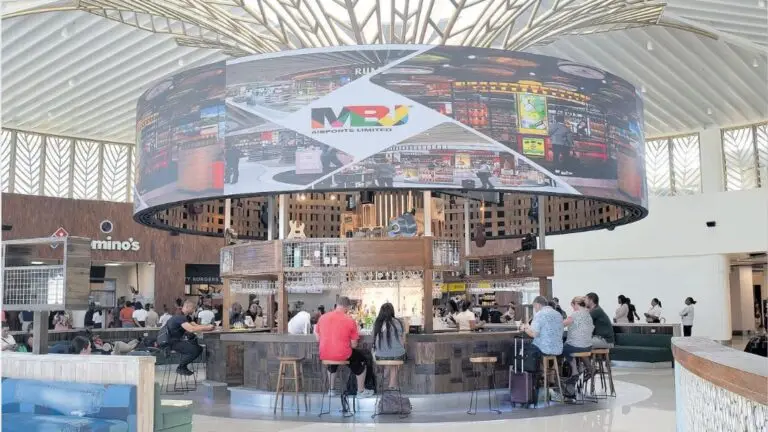For years, Express Catering Limited (ECL) thrived within the comfortable confines of Montego Bay’s Sangster International Airport, capitalizing on the steady stream of departing tourists with a menu of familiar international brands. But behind the aroma of burgers, pizzas, and island-themed cocktails, a much deeper transition has been quietly unfolding—one that may redefine the company’s core identity.
Recent financial disclosures paint the picture of a business in evolution. While the growth in revenue and profit is notable, it’s the composition of the balance sheet that truly signals a shift: ECL is retooling from a physical operator of outlets into a brand-holding powerhouse, setting the stage for a leap from airport exclusivity into the open market.
Earnings Lift Off, Margin Turbulence Smoothed
In the first quarter of FY2026, ECL’s net profit catapulted by 50%, hitting US$1.51 million. Revenue climbed to US$6.8 million, a modest 5% uptick year-over-year, but the real performance driver was efficiency. Gross margins surged past 74%, a significant leap from the prior 70%, reflecting aggressive cost containment and fixed-price contract strategies that shielded the business from volatile food input costs.
Passenger traffic alone couldn’t explain the profitability spike. This was surgical—operational discipline, not windfall traffic, is what drove bottom-line expansion.
Hardware Out, IP In: The Franchise Flip
ECL’s capital allocation strategy has undergone a dramatic inversion. Investment in physical infrastructure fell off a cliff—down 93% to US$85,501—while intangible asset acquisitions (primarily licenses and franchises) soared to over US$5.4 million.
This isn’t just a rebalancing—it’s a philosophical shift. The company no longer views kitchen equipment as the growth engine. Instead, it’s betting that brand equity and licensing rights will provide leverage far beyond airport walls.
Management has confirmed these acquisitions are laying the groundwork for national expansion, eyeing territories beyond the gates of Sangster. While exact brands remain under wraps, the company has a history of securing regional rights for high-traffic American franchises—hints suggest these dormant deals are now waking up.
Off the Runway: Expansion Into Everyday Jamaica
For a business long tethered to transient travelers, the ambition to serve everyday Jamaicans represents a seismic change. No longer content with airside exclusivity, ECL is planting flags in the domestic retail space—restaurants, malls, high-traffic pedestrian zones.
The company is expected to begin with a focused rollout, launching two or three flagship outlets to test consumer appetite, logistics, and brand performance outside the duty-free ecosystem. Management anticipates this dual-channel strategy—airport dominance and local market penetration—will insulate the company from cyclical shocks and airport congestion variability.
Still Anchored at the Core: Sangster Remains Strategic
Despite the outward push, ECL’s fortress remains Sangster International. Passenger volumes hit a record 2.66 million in the last fiscal year, and a mammoth US$750 million airport expansion will deepen ECL’s roots. With limited new competition post-security, its portfolio of franchises operates with a semi-monopolistic edge. This remains a cash cow—even as the company begins to graze elsewhere.
Shareholder Optics: Dividends, Debt, and the Parent Puzzle
Underneath the operational momentum lies a more delicate dance—capital returns and intercompany lending. A significant US$17.81 million is owed by ECL to its parent company, Margaritaville St Lucia, structured as an interest-free loan with no defined repayment schedule. At the same time, ECL continues to service its own bond and lease obligations.
Dividend activity has resumed, marking a possible channel for the parent to slowly extract value and retire this related-party debt without impacting cash flow optics. Still, analysts watching the company’s leverage ratios may grow increasingly vocal as long as this intercompany arrangement lingers.
Ownership Concentration: Control Remains Tight
The shareholding profile remains largely consolidated. Margaritaville St Lucia retains a 62.32% grip, with directors and affiliates collectively controlling north of 70%. The slight drop in retail shareholders—down to 2,071—signals a trimming of speculative hands, with longer-term capital likely stepping in.
However, this concentration raises governance questions—particularly as the company embarks on a transformative strategy requiring new risk profiles and capital allocations outside its historic domain.
Yield Per Passenger: The Next Battlefront
While foot traffic increased, the average spend per passenger declined slightly—a signal that may be benign or symptomatic. Management has already begun deploying self-service kiosks to combat line bottlenecks, hoping to drive per-head revenue back upward.






